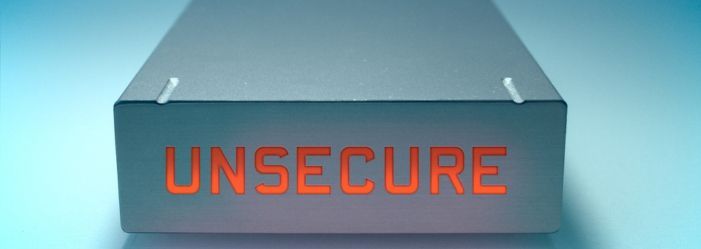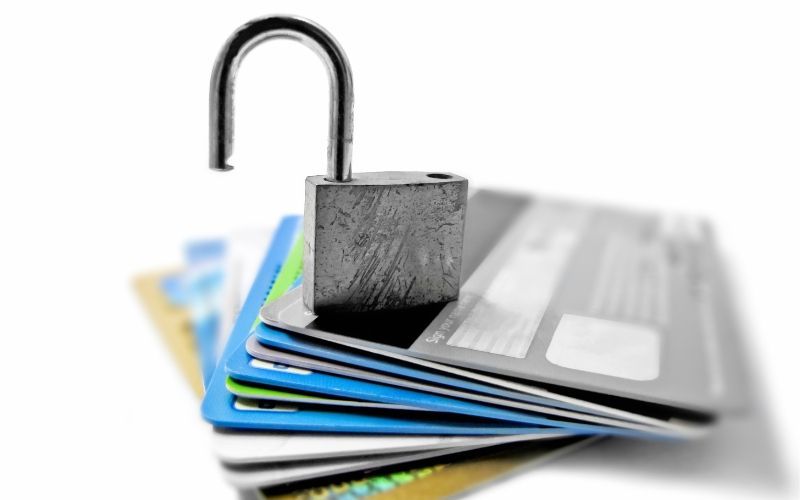Last Updated: March 05, 2025
What is Unsecured Debt Consolidation Loans?

The concept is simple enough. If you have high-interest credit cards, you simply need to find a lender that offers unsecured debt consolidation loans and apply for one. Then you pay off all your credit cards and have one affordable single monthly payment with a low-interest rate that will allow you to pay off all of your bills.
However, it's important to carefully explore all of your debt relief options before committing to one path. There are often multiple ways to reach the goal of becoming debt-free.
Reminder:
Be cautious of taking on more debt than you can truly afford just to consolidate your existing debts. Debt consolidation loans can seem attractive, but make sure you have a plan to pay off the new consolidated loan and avoid racking up additional credit card debt after consolidation.
Also, consider how the term length of the debt consolidation loan compares to your existing debts. The loan may have higher monthly payments over a shorter timeframe, so run the numbers carefully. Some loans may have prepayment penalties, so be sure to check the fine print before signing.
The major problem with this simple concept is that in our current economic environment, finding a lender that will extend an unsecured debt consolidation loan at a low rate is much easier said than done. In fact, it is pretty much impossible for someone that doesn't have great credit history and is already struggling with their current monthly payments. No lender wants to take on another lenders problems.
Resources For Unsecured Debt Consolidation Loans
If you have been turned down for several unsecured debt consolidation loans from traditional lenders you may want to look into peer to peer lending networks like Lending Club or Prosper. Since they are programs that connect potential borrowers directly to investors and essentially cut the bank out of the equation, it can often times be easier to get an approval. However, in order to qualify for a personal loan for debt, your credit score will need to be at least in the mid 600's.
If your score is lower than 670, you will not likely get approved and if it isn’t higher than the mid 700’s than the rate on your loan is likely to be in the 12% to 15% range making your monthly payments likely higher than your current minimum monthly payments. This is due to the fact that the loan will only be amortized over a 3 to 5 year period which is considerably shorter than most credit cards.
Another potential debt relief option to consider are debt management plans through non-profit credit counseling agencies. These programs can negotiate with creditors to potentially lower interest rates and combine multiple debts into one more manageable monthly payment.
The unfortunate reality is that unsecured debt consolidation loans are simply not going to be available to the consumers who need them the most. The good news, however, is that there is typically more than one path to a destination and if your initial path to debt freedom has been blocked, there are other options available that have not been.
One such option to look into is a debt settlement approach. Debt settlement does not involve getting an unsecured debt consolidation loan. By implementing a debt settlement strategy you will be attempting to negotiate down the principle balance of your debt with the creditors.
A loan for debt consolidation can seem attractive, but make sure you have a plan to pay off the new consolidated loan and avoid racking up additional credit card debt after consolidation.
Keep in mind debt settlement can negatively impact your credit score in the short term. Additionally, any forgiven debt may be taxable income, so consult with a tax advisor.
Budgeting Tips
Getting your debt under control often starts with better budgeting.
Consider these tips:
- Track your monthly expenses to understand where your money is going
- Identify areas where you can cut back on spending
- Create a written budget each month and stick to it
- Pay needs before wants and avoid unnecessary purchases
- Look for ways to increase your income if possible
Having a solid budget is key to not accumulating further debt as you work your way towards becoming debt-free.
Debt Payoff Strategies
Here are some strategies to pay off debt faster:
- Pay more than the minimum each month
- Prioritize paying debts with higher interest rates first
- Explore credit card consolidation options to lower interest costs
- Use windfalls like tax refunds to make extra debt payments
- Consider taking on a side gig for extra income to put towards debt
Every extra dollar put towards debt helps you pay it off faster and reduces the total interest paid over the long term.
Alternatives to Debt Consolidation
If debt consolidation loans are not a good option for your situation.
Here are some other debt payoff methods:
- Debt avalanche method - focus on paying high-interest debt first
- Debt snowball method - pay the smallest debts first for quick wins
- Use a HELOC or cash-out mortgage refinance for a lower interest rate
- Seek credit counseling and set up a Debt Management Plan (DMP)
- Negotiate directly with creditors for better repayment terms
- Explore liquidating assets or downsizing housing to pay off debt
Having multiple alternatives increases your chances of finding a debt relief solution that works for you.
A debt settlement strategy is not appropriate for consumers in all situations. If you would like to explore how a debt settlement strategy may allow you to lower your monthly debt payments and get out of debt in only a few years, feel free to contact the Debt Settlement Professionals at Pacific Debt for a no obligation Debt Reduction Estimate.
FAQs
Conclusion
Take time to thoroughly research any debt relief option to understand the risks and benefits before enrolling. Consult with a financial advisor if needed to review your full financial situation. There are always multiple paths to reach your goal of becoming debt-free, so explore all options.
If you are struggling with overwhelming debt and want to explore your debt relief options, Pacific Debt Relief offers a
free consultation to assess your financial situation. Our debt specialists can provide objective guidance relevant information and support to help find the right debt relief solution.
✔ Accredited by Better Business Bureau with BBB A+ rating (4.93 rating and 1678 reviews)
✔ US News and World Reports and Bankrate ranked Pacific Debt Relief as one of “The Best Debt Relief Companies of 2024”
✔ 6.9 star rating by BestCompany.com (over 2379 client reviews)
✔ 4.8 star rating by TrustPilot based (over 1613 verified consumer reviews)
✔ ConsumerAffairs.com Accredited (over 544 verified reviews with an average rating of 5 stars)
✔ A Top 10 Rated Compan by TopTenReviews.com , ConsumersAdvocate.com and Top10debtconsolidation.com
✔ 4.6 star rating by Google (229 client reviews)
✔ 100% rating by SuperMoney (9 client reviews)
Reduce Your Credit Card Debt By Up to Half

BBB Reviews | 4.9/5.0 Rating









 Do Not Sell My Personal Information
Do Not Sell My Personal Information